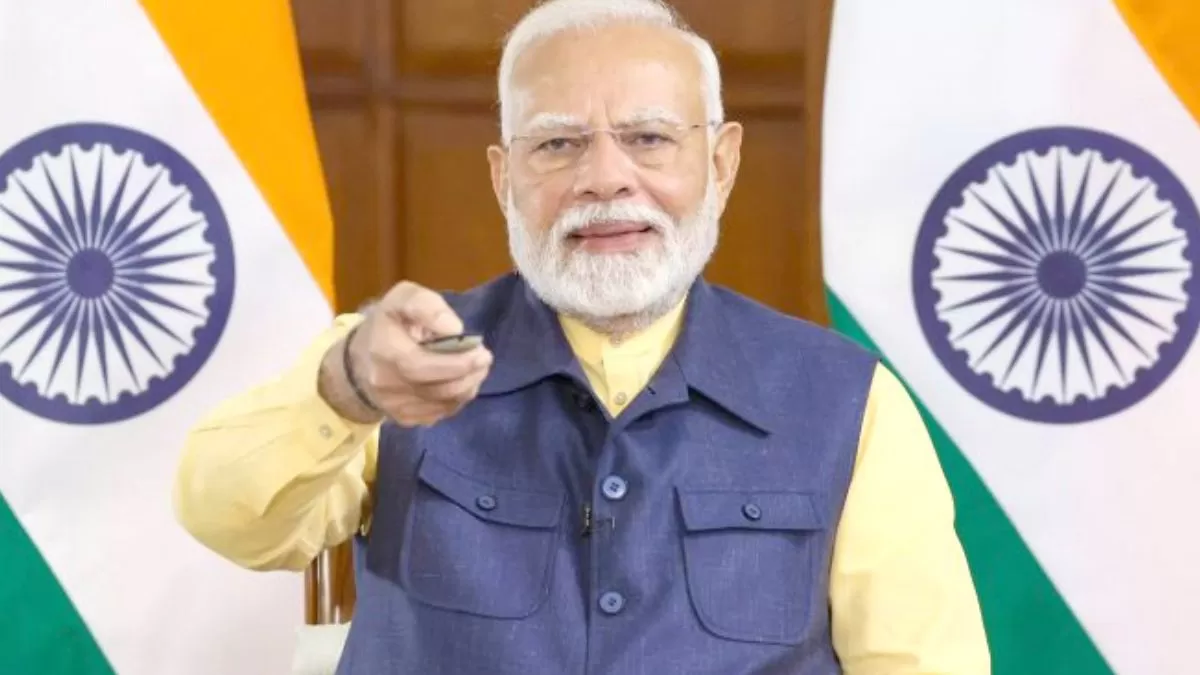Prime Minister Narendra Modi marked the first anniversary of the BJP-led Odisha government by inaugurating and laying foundation stones for over Rs 186 billion worth of development projects during a state-level event in Bhubaneswar on 20 June. The projects span critical sectors including drinking water, irrigation, agriculture, health infrastructure, rural connectivity, highways, and railways.
In his address, the Prime Minister congratulated Chief Minister Mohan Charan Majhi and his team, stating that the anniversary symbolised not just a change in government, but the beginning of good governance anchored in public service. Emphasising Odisha’s rich cultural contribution to Indian civilisation, he noted the state's growing importance in the country’s development journey.
The Prime Minister lauded the government’s efforts in preserving Odisha’s heritage while accelerating its progress. Highlighting the simultaneous celebration of Rath Yatra, he praised the opening of all four gates and the Ratna Bhandar of Shree Jagannath Temple as a sign of respect for the sentiments of millions of devotees.
Mr Modi criticised past regimes for failing to provide good governance, saying their approach delayed and derailed development while fuelling corruption. He said the BJP model, as seen in states like Assam and Tripura, had brought about a transformation through stability, peace, and improved infrastructure—now mirrored in Odisha.
He highlighted improvements in Odisha’s public healthcare through the convergence of the Ayushman Bharat and Gopabandhu Jan Arogya Yojana, which together now offer nearly 30 million people free treatment across the country. Over 2 lakh residents have benefitted, many accessing services even outside the state. Additionally, over 2.3 million elderly citizens now receive up to Rs 500,000 in medical cover.
Farmers in Odisha now receive dual benefits from both state and central schemes. Paddy procurement at higher prices, earlier denied to many, has now reached lakhs of cultivators.
The Prime Minister spoke extensively about the government’s commitment to empowering tribal communities. He criticised previous governments for marginalising these groups and fuelling Naxalism, noting that areas once plagued by insurgency have now reduced from 125 districts to fewer than 20.
He outlined two central schemes launched for tribal upliftment:
- Dharati Aaba Janjatiya Gram Utkarsh Abhiyan: Involves development in over 60,000 tribal villages with investments in housing, roads, electricity, and water. In Odisha, 40 residential schools are being built across 11 districts.
- PM Janman Yojana: Inspired by Odisha’s own tribal legacy and shaped by the guidance of President Droupadi Murmu, this scheme supports Particularly Vulnerable Tribal Groups (PVTGs) in remote hamlets.
He also highlighted support for Odisha’s fisherfolk, noting their inclusion under the Kisan Credit Card scheme and a new Rs 250 billion central fund to support coastal communities and create youth employment.
Emphasising that Eastern India would power the nation’s 21st-century development, he spotlighted Odisha’s rapid industrialisation. Projects like the mega dual-feed cracker at Paradip, crude storage in Chandikhole, and LNG terminal in Gopalpur are expected to drive a petrochemical-led economy and generate lakhs of jobs. Already, Rs 1.5 trillion has been invested in Odisha’s petroleum sector.
Looking to the future, Mr Modi said the government is planning not just for five years, but for decades. Vision 2036 and Vision 2047—marking Odisha’s centenary and India’s 100th year of independence—form the basis for long-term, inclusive growth. He expressed confidence in Odisha’s youth to fulfil this ambitious roadmap.
The Prime Minister also flagged off new train services connecting Boudh district to India’s railway network and launched 100 electric buses in Bhubaneswar to promote clean urban mobility.
Further, he released the Odisha Vision Document, laying out the state’s development goals, and launched the Baraputra Aitihya Gram Yojana, a heritage initiative to honour Odisha’s cultural icons through memorials, museums, and public spaces.
Finally, PM Modi celebrated the success of more than 1.65 million Lakhpati Didis, recognising them as symbols of self-reliance and prosperity in the state.
Governor Dr Hari Babu Kambhampati, Union Ministers Jual Oram and Dharmendra Pradhan, and other dignitaries also attended the ceremony.




















